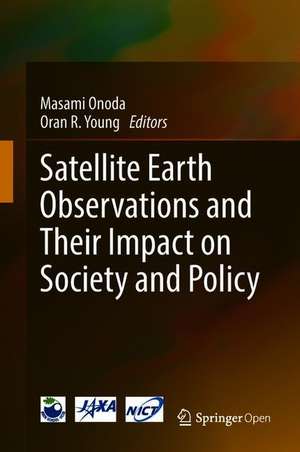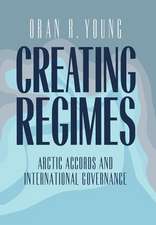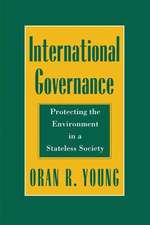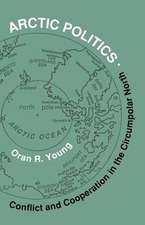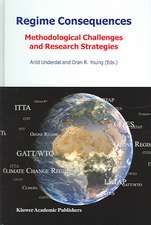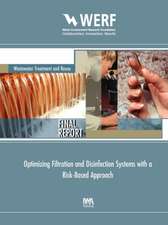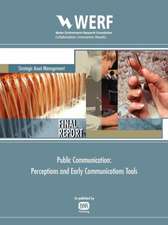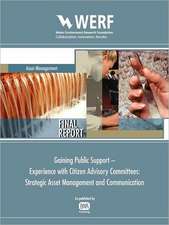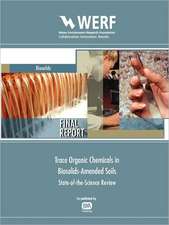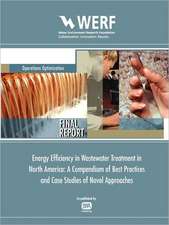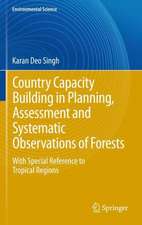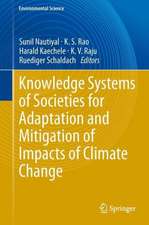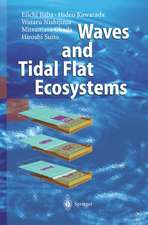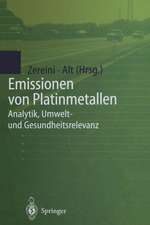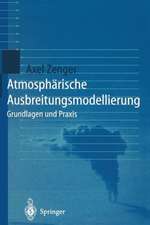Satellite Earth Observations and Their Impact on Society and Policy
Editat de Masami Onoda, Oran R. Youngen Limba Engleză Hardback – 27 iun 2017
The result of a workshop bringing together an international advisory board of experts in science, satellite technologies, industry innovations, and public policy, this book addresses the current and future roles of satellite Earth observations in solving large-scale environmental problems. The book showcases the results of engaging distinct communities to enhance our ability to identify emerging problems and to administer international regimes created to solve them. It also reviews the work of the Policy and Earth Observation Innovation Cycle (PEOIC) project, an effort aimed at assessing the impact of satellite observations on environmental policy and to propose a mission going forward that would launch an “innovation cycle”. The achievements of such a mission would feed back to innovations in next-generation observation technology, thus contributing to global policy demand for policy-relevant information.
This book is open access under a CC BY license.
| Toate formatele și edițiile | Preț | Express |
|---|---|---|
| Paperback (1) | 385.47 lei 43-57 zile | |
| Springer Nature Singapore – 15 aug 2018 | 385.47 lei 43-57 zile | |
| Hardback (1) | 426.18 lei 43-57 zile | |
| Springer Nature Singapore – 27 iun 2017 | 426.18 lei 43-57 zile |
Preț: 426.18 lei
Nou
Puncte Express: 639
Preț estimativ în valută:
81.58€ • 88.64$ • 68.57£
81.58€ • 88.64$ • 68.57£
Carte tipărită la comandă
Livrare economică 21 aprilie-05 mai
Preluare comenzi: 021 569.72.76
Specificații
ISBN-13: 9789811037122
ISBN-10: 9811037124
Pagini: 221
Ilustrații: XXV, 221 p. 57 illus., 51 illus. in color.
Dimensiuni: 155 x 235 mm
Greutate: 0.53 kg
Ediția:1st ed. 2017
Editura: Springer Nature Singapore
Colecția Springer
Locul publicării:Singapore, Singapore
ISBN-10: 9811037124
Pagini: 221
Ilustrații: XXV, 221 p. 57 illus., 51 illus. in color.
Dimensiuni: 155 x 235 mm
Greutate: 0.53 kg
Ediția:1st ed. 2017
Editura: Springer Nature Singapore
Colecția Springer
Locul publicării:Singapore, Singapore
Cuprins
Satellite Earth Observations in Environmental Problem-Solving.- Policy and Earth Observation Innovation Cycle (PEOIC) Project (Japan).- Innovation in Earth Observations as a National Strategic Investment: The Experience of the U.S.- Benefits Assessment of Applied Earth Science.- ESA’s Earth Observation Strategy and Copernicus.- Earth Observation--UK Perspective and Policy.- Benefit Assessment of the Application of Satellite Earth Observation for Society and Policy: Assessing the Socio-economic Impacts of the Development of Downstream, Space-based Earth Observation Applications.- Chinese Earth Observation Program and Policy.- Greenhouse Gas Observation from Space.- Japanese Satellite Earth Observation: Status and Policy Issues.- The New 10-Year GEOSS Strategy for 2016 and Beyond.- The Value of Global Earth Observations.- Earth Observation Support to the UN Framework Convention on Climate Change: The Example of REDD+.- Quantitative Assessment of the Earth Observation Data and Methods Used to Generate Reference Emission Levels for REDD+.- Evaluation of Space Programs: Select Findings from the OECD Space Forum.- Integrating Earth Observation Systems and International Environmental Regimes.- Conclusion.
Notă biografică
Masami Onoda is currently the U.S. and multilateral relations interface at the International Relations and Research Department of the Japan Aerospace Exploration Agency, Fellow of the Institute of Global Environmental Strategies and Advisor to the space debris start-up Astroscale Pte Ltd. Dr. Onoda has been engaged in international coordination of satellite programs including serving on the Secretariat of the intergovernmental Group on Earth Observations in Geneva, Switzerland, and earlier as the Secretariat of the Committee on Earth Observation Satellites. She has also supported technology transfer to SMEs for a small satellite project. She holds a Ph.D. in Global Environmental Studies and a Master’s degree in environmental management from the Kyoto University Graduate School of Global Environmental Studies, and a bachelor’s degree in international relations from the University of Tokyo.
Oran R. Young is a renowned Arctic expert and a world leader in the fields of international governance and environmental institutions. His scientific work encompasses both basic research focusing on collective choice and social institutions, and applied research dealing with issues pertaining to international environmental governance and the Arctic as an international region. Professor Young served for 6 years as vice-president of the International Arctic Science Committee and was the founding chair of the Committee on the Human Dimensions of Global Change within the National Academy of Sciences in the U.S. He currently chairs the Scientific Committee of the International Human Dimensions Programme on Global Environmental Change and the Steering Committee of the Arctic Governance Project.
Textul de pe ultima copertă
The result of a workshop bringing together an international advisory board of experts in science, satellite technologies, industry innovations, and public policy, this book addresses the current and future roles of satellite Earth observations in solving large-scale environmental problems. The book showcases the results of engaging distinct communities to enhance our ability to identify emerging problems and to administer international regimes created to solve them. It also reviews the work of the Policy and Earth Observation Innovation Cycle (PEOIC) project, an effort aimed at assessing the impact of satellite observations on environmental policy and to propose a mission going forward that would launch an “innovation cycle”. The achievements of such a mission would feed back to innovations in next-generation observation technology, thus contributing to global policy demand for policy-relevant information.
This book is open access undera CC BY license.
Caracteristici
Results from an unprecedented workshop bringing together an international advisory board of experts in science, policy, Earth observation, and innovative industry Presents an up-to-date and unique compilation of the breadth of work in studies on the socioeconomic impact of satellite Earth observation Is relevant to a society that seeks to understand the link between observations and government policies decided in the Paris Agreement and future discussions on climate change Includes supplementary material: sn.pub/extras
